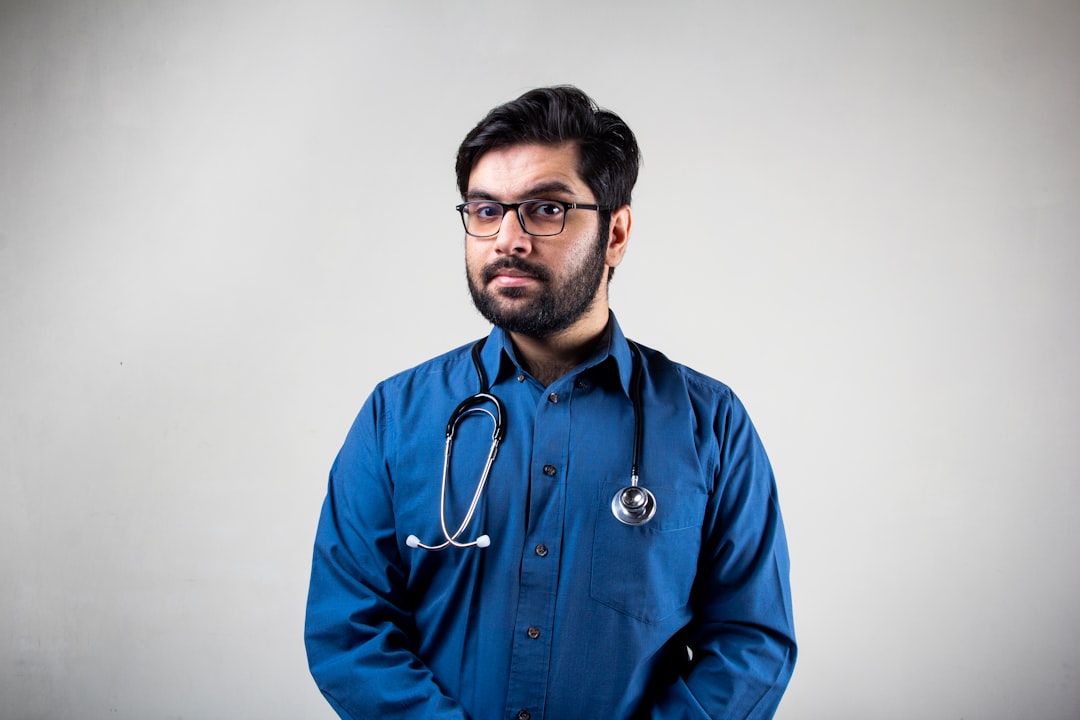As Norway’s population ages, the demand for elderly care services is becoming increasingly pronounced. With advancements in healthcare leading to longer life expectancies, a significant portion of the population is now over the age of 65. This demographic shift presents both challenges and opportunities for the Norwegian healthcare system.
The growing number of elderly individuals necessitates a comprehensive approach to care that not only addresses medical needs but also considers social, emotional, and psychological well-being. Moreover, the trend is expected to continue, with projections indicating that by 2030, nearly one in five Norwegians will be aged 65 or older. This demographic change is prompting a re-evaluation of existing care models and the development of new strategies to ensure that the elderly receive the support they require.
As families become smaller and more dispersed, the reliance on traditional family caregiving diminishes, further amplifying the need for professional elderly care services. Book your 1-hour strategy session with Norway Relocation Group.
Summary
- The growing elderly population in Norway has led to an increased need for elderly care services.
- The Norwegian healthcare system for the elderly is based on a universal and public healthcare system.
- Elderly care services in Norway include home care, assisted living facilities, and nursing homes.
- The government provides support and funding for elderly care services to ensure accessibility and quality.
- Family and community play a significant role in providing care and support for the elderly in Norway.
Understanding the Norwegian Healthcare System for the Elderly
The Norwegian healthcare system is characterised by its universal coverage, which extends to all citizens, including the elderly. Funded primarily through taxation, this system aims to provide equitable access to healthcare services regardless of an individual’s financial situation. For elderly citizens, this means that essential medical services, hospital care, and rehabilitation are readily available without direct costs at the point of service.
In addition to medical care, the system also encompasses a range of support services tailored specifically for the elderly. These include home care assistance, nursing homes, and specialised geriatric services. The integration of these services is crucial in ensuring that elderly individuals can maintain their independence for as long as possible while receiving the necessary support.
Understanding how these services interconnect is vital for families and caregivers who seek to navigate the complexities of elderly care in Norway.
Types of Elderly Care Services Available in Norway

Norway offers a diverse array of elderly care services designed to meet the varying needs of its ageing population. At the forefront are home care services, which allow elderly individuals to remain in their own homes while receiving assistance with daily activities such as bathing, meal preparation, and medication management. This model not only promotes independence but also enhances the quality of life for many seniors who prefer familiar surroundings.
In addition to home care, institutional options such as nursing homes and assisted living facilities provide more comprehensive support for those with greater needs. These facilities are equipped to offer round-the-clock care and often include amenities that promote social interaction and engagement among residents. Furthermore, respite care services are available for family caregivers who may need temporary relief from their caregiving responsibilities.
This variety of options ensures that elderly individuals can receive personalised care tailored to their specific circumstances.
Government Support and Funding for Elderly Care Services
The Norwegian government plays a pivotal role in funding and supporting elderly care services. Through a combination of national and municipal funding, resources are allocated to ensure that all citizens have access to necessary care. This financial backing is crucial in maintaining high standards of service delivery and ensuring that facilities are adequately staffed and equipped.
Moreover, government initiatives often focus on improving the quality of care through training programmes for staff and investments in infrastructure. By prioritising funding for elderly care, Norway demonstrates its commitment to providing dignified and respectful treatment for its ageing population. This support not only enhances the quality of life for seniors but also alleviates some of the burdens faced by families who may otherwise struggle to provide adequate care.
The Role of Family and Community in Elderly Care
Family members often serve as the first line of support for elderly individuals in Norway. The cultural emphasis on familial responsibility means that many seniors rely on their loved ones for assistance with daily tasks and companionship. However, as families become smaller and more geographically dispersed, the dynamics of caregiving are changing.
This shift highlights the importance of community involvement in providing support for the elderly. Community organisations and local initiatives play a vital role in supplementing family care. Volunteer programmes, social clubs, and community centres offer opportunities for seniors to engage with others and participate in activities that promote mental and emotional well-being.
By fostering a sense of community, these initiatives help combat loneliness and isolation among the elderly, ensuring that they remain connected to society.
Quality of Life and Wellbeing in Norwegian Elderly Care Facilities

Quality of life is a central focus in Norwegian elderly care facilities. The design and operation of these facilities prioritise not only medical needs but also social interaction and personal fulfilment. Many nursing homes incorporate features such as communal dining areas, gardens, and activity rooms that encourage residents to engage with one another and participate in various activities.
Furthermore, staff training emphasises person-centred care, which respects the individuality of each resident. This approach allows caregivers to tailor their support based on personal preferences and histories, fostering a sense of dignity and autonomy among residents. By prioritising quality of life alongside medical care, Norwegian facilities strive to create environments where elderly individuals can thrive.
Training and Qualifications for Elderly Care Providers in Norway
The quality of elderly care services in Norway is heavily dependent on the training and qualifications of care providers. To ensure that caregivers are equipped with the necessary skills and knowledge, Norway has established rigorous training programmes that cover both theoretical knowledge and practical experience. These programmes typically include coursework on gerontology, communication skills, and ethical considerations in caregiving.
In addition to formal education, ongoing professional development is encouraged within the sector. Care providers are often required to participate in workshops and training sessions to stay updated on best practices and emerging trends in elderly care. This commitment to continuous learning not only enhances the quality of care provided but also fosters a culture of professionalism within the industry.
Challenges and Issues in Providing Elderly Care Services in Norway
Despite its strengths, the Norwegian elderly care system faces several challenges that must be addressed to ensure its sustainability. One significant issue is the increasing demand for services coupled with a shortage of qualified personnel. As more individuals enter retirement age, the strain on existing resources becomes more pronounced, leading to concerns about staffing levels and service availability.
Additionally, there are ongoing discussions about the adequacy of funding for elderly care services. While government support is substantial, some argue that it may not be sufficient to meet the growing needs of an ageing population. Addressing these challenges requires innovative solutions and collaborative efforts between government agencies, healthcare providers, and communities.
Innovations and Technology in Elderly Care Services in Norway
Innovation plays a crucial role in enhancing elderly care services in Norway. The integration of technology into caregiving practices has opened new avenues for improving efficiency and quality of life for seniors. For instance, telehealth services allow healthcare providers to conduct remote consultations, making it easier for elderly individuals with mobility issues to access medical advice without needing to travel.
Moreover, assistive technologies such as monitoring systems and mobility aids are increasingly being utilised within homes and care facilities. These innovations not only enhance safety but also promote independence among seniors by enabling them to manage their daily activities more effectively. As technology continues to evolve, its potential to transform elderly care services remains significant.
Cultural and Ethical Considerations in Elderly Care in Norway
Cultural values play a significant role in shaping attitudes towards elderly care in Norway. The emphasis on respect for individual autonomy and dignity informs caregiving practices across the country. Ethical considerations are paramount when making decisions about care options, ensuring that the preferences and rights of elderly individuals are upheld.
Furthermore, cultural diversity within Norway necessitates an understanding of different perspectives on ageing and caregiving. As the population becomes increasingly multicultural, it is essential for caregivers to be sensitive to varying cultural norms and practices related to elder care. This awareness fosters an inclusive environment where all seniors feel valued and respected.
Future Trends in Elderly Care Services in Norway
Looking ahead, several trends are likely to shape the future of elderly care services in Norway. One prominent trend is the continued emphasis on community-based care models that prioritise independence while providing necessary support. As families seek alternatives to institutionalised care, there will be a growing focus on developing resources that enable seniors to live comfortably within their communities.
Additionally, advancements in technology will continue to influence how care is delivered. From smart home devices that assist with daily tasks to virtual reality applications designed for cognitive engagement, innovation will play a key role in enhancing both quality of life and efficiency within the sector. As these trends unfold, it will be essential for stakeholders—including government agencies, healthcare providers, families, and communities—to collaborate effectively in order to create a sustainable framework for elderly care that meets the evolving needs of Norway’s ageing population.
In this context, language proficiency becomes increasingly important for those involved in elderly care services—especially as cultural diversity grows within Norway’s senior population. For those looking to enhance their communication skills or pursue a career in this field, Norwegian courses at NLS Norwegian Language School offer an excellent opportunity to gain fluency while understanding cultural nuances essential for effective caregiving. By investing in language education at NLS, caregivers can better connect with their clients and provide more personalised support tailored to individual needs—ultimately contributing to improved outcomes within Norway’s elderly care landscape.
Speak Norwegian with confidence. Enroll in a class at the NLS Norwegian Language School now.

